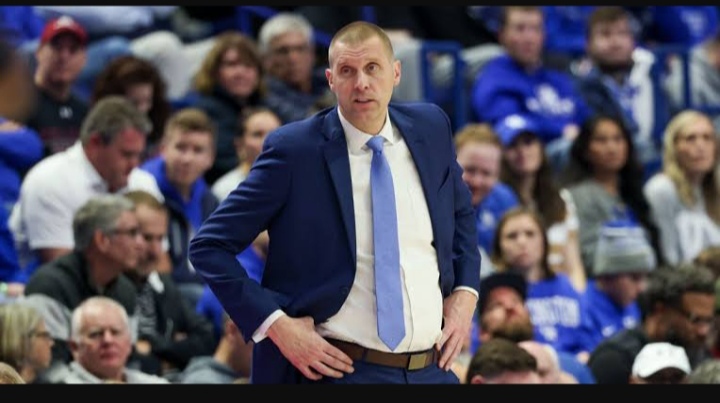Why Is Kentucky’s Mark Pope Pushing for a Radical Change to College Basketball’s Schedule — And Could It Really Reach 40 Games?
In the ever-changing landscape of college basketball, bold ideas often spark the loudest conversations. And right now, one of the boldest belongs to Kentucky Wildcats head coach Mark Pope, who has floated a vision that could radically reshape the sport: a 40-game regular season.
The proposal, which would extend the NCAA’s current limit of 31 games, has already caught the attention of fans, analysts, and conference leaders. But why is Pope — just months into his tenure leading one of the most storied programs in college basketball — pushing so hard for such a dramatic shift?
Pope’s Vision: More Games, More Opportunities
For Pope, the logic is simple but powerful. In a world where professional sports leagues play longer schedules and fan attention is constantly being pulled in multiple directions, college basketball must adapt. A 40-game season, Pope argues, would mean:
-
More opportunities for players to showcase their skills to NBA scouts.
-
More marquee matchups between power programs, drawing national TV audiences.
-
More home games to boost revenue and fan engagement at iconic venues like Rupp Arena.
-
More content for the growing NIL market, giving players additional exposure.
“We’re competing for attention against the NBA, NFL, March Madness, and even international basketball,” Pope has reportedly told colleagues. “We can’t afford to stay stuck in the same format while everything else is evolving.”
The Current NCAA Limits — and the Hurdles Ahead
Right now, NCAA rules allow for 31 regular season games, including exempt tournaments. To jump to 40 would require a sweeping policy change — something that would need buy-in from university presidents, conference commissioners, and the NCAA governance structure.
Potential roadblocks include:
-
Player fatigue and health concerns over an extended schedule.
-
Conflicts with the academic calendar, especially during heavy travel months.
-
Inequality between large and small programs, as resource-rich schools could handle a longer season more easily.
Still, some administrators believe the idea could at least be explored. Expanding the schedule could increase TV contracts, attract larger sponsors, and further grow March Madness’s massive brand appeal.
Kentucky’s Stakes in the Debate
For Kentucky, a longer season could be transformative. The Wildcats could book more high-profile non-conference opponents, give fans extra Rupp Arena nights, and create more “big-game” moments to fuel recruiting. Pope’s push also signals that he’s thinking beyond short-term roster moves — he’s looking at how the sport itself can evolve.
This move also plays into Kentucky’s brand identity as a trendsetter. Just as the program has historically been at the forefront of recruiting innovation, scheduling philosophy, and national exposure, it could now be leading a conversation about how much college basketball fans should get to enjoy each year.
Could It Really Happen?
The path from idea to reality will be long. NCAA governance changes can take years, and the 40-game idea would require a near-total rewrite of scheduling policies. But Pope’s willingness to say it out loud — and his platform as Kentucky’s head coach — ensures the concept will remain part of the national dialogue.
And in college basketball, big changes often start with one coach willing to push the envelope. Whether 40 games is realistic or simply aspirational, Pope has already succeeded in starting a conversation that could eventually transform the sport.
For now, fans will be watching closely to see if this proposal gains traction… and if the Wildcats might one day be playing not just for March, but for February, April, and maybe even May glory.





















